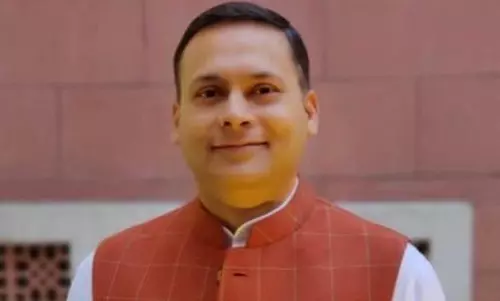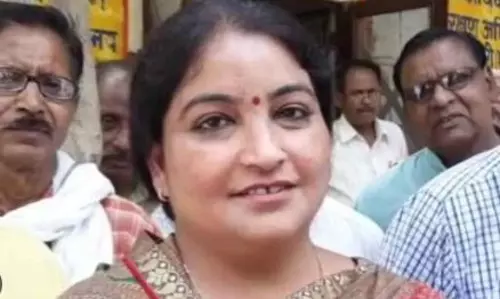
Broad secular collective and CPM Party Congress
text_fieldsWhen the question whether India will continue to remain a secular democratic nation comes up with unprecedented relevance, the report about the conclusion of the 22nd party Congress of the CPM in Hyderabad comes with some hope to everyone apprehensive about the country’s future.
Everyone would agree that it is the CPM that can still claim relatively more power, influence and public support among the existing Left wing parties. After Bengal, Tripura too abandoned the Left front. In a situation when the party hangs on to power only in Kerala, dark shadows of a split hovering around the main factions of the CPM had triggered anxiety among not only the party workers but also the secular society at large. It cannot be forgotten that it was when the differences over the approach to be adopted towards the Indian National Congress and the government led by the party and the controversies surged up, that the Indian Communist Party split into two in 1964. It was again over the approach towards the Congress that the fissures within the CPM deepened and the current general secretary Sitaram Yechury and his predecessor Prakash Karat took divergent stances. Given that there are no differences between the leaders over the fact that the main threat the nation faces is posed by the hardline right wing communal forces under RSS-BJP who are foes of secular democracy, the dilemma which led to the conflicting stances was whether the party should take sides with the Congress which is a secular democratic party in order to deal with the main enemy and in that case, to what extent. Not only was a consensus not possible at the prolonged debates in Polit Bureau, central council or the Kolkatta plenum; it also emerged that the majority opinion was in favour of the line of Prakash Karat and likeminded leaders that there cannot be any alliance or even understanding with the Congress. That put the future of Sitaram Yechury and those with the same theory in doubt. Predictions were even made that if the divergence continued unresolved again at the party congress in Hyderabad, most the north Indian states including Bengal, who stood with Yechury, would fall out.
However, when the debates on the draft political resolution ended, the party congress was reaching a consensus with prospects of achieving an understanding in the 2019 general elections even without any change in their stance that no political alliance with the Indian National Congress was possible. Even though there is still uncertainty over the fundamental issue as to whether the political parties of the RSS and BJP and the Sangh Parivar government are Fascists, it is on the fact that the Modi government should in no way be allowed to continue in power, that the CPM has reached a consensus. The opportunity for implementing that policy was realized by allowing Yechury a second term as the party general secretary. As days go by, when the Modi regime is moving ahead with more and more anti-people policies and deeply reactionary obstinacies, it would undoubtedly be suicidal for the secular society to give another term to such a government. True, the Congress and the UPA government, can be alleged to harbor corporate loyalty, and commitment to neo-liberal economic policies and American imperialism, but not totalitarian leanings, or defiance of democracy or the urge for extinction of Dalit-minority-backward classes. That was why the CPM and the Left propped up Manmohan Singh during a critical period for eight years. The left made a retreat from that only towards the end of its term, when that government signed the nuclear treaty with the US. And even about that decision, there is a rethinking in the Left that it was imprudent.
Even after the party Congress adopted the political resolution unanimously, internal differences have not ceased to exist, though that cannot be termed as fully ideological or policy-related. It would be more honest to concede that factionalism and personal grudges do still exist in the CPM which is gradually losing its stability. One core issue is that in Bengal, purported to be an impregnable fortress of the Left, the party is facing extinction. Despite its co-operation with the Congress in the last assembly election, the party could not gain anything. The fact is that at the face of Mamata Banerjee' strength, all Opposition there becomes helpless. And Mamata will not be accepted by the Indian psyche as a Fascist on a par with the BJP. Her success was that most of the erstwhile mercenaries of CPM were almost en bloc brought into the fold of Trinamool. And those are now adopting towards CPM under the banner of Trinamool, all the tactics they had adopted against adversaries while they were in CPM. The party Congress has not found out how it can circumvent this vicious circle. And in the case of the Congress, its mind is not fully prepared to accept an alliance with the left. All said and done, it still remains a fact that only when an all-embracing secular collective, including Trinamool is formed, can it confidently challenge the threat of Sangh parivar fascism.























